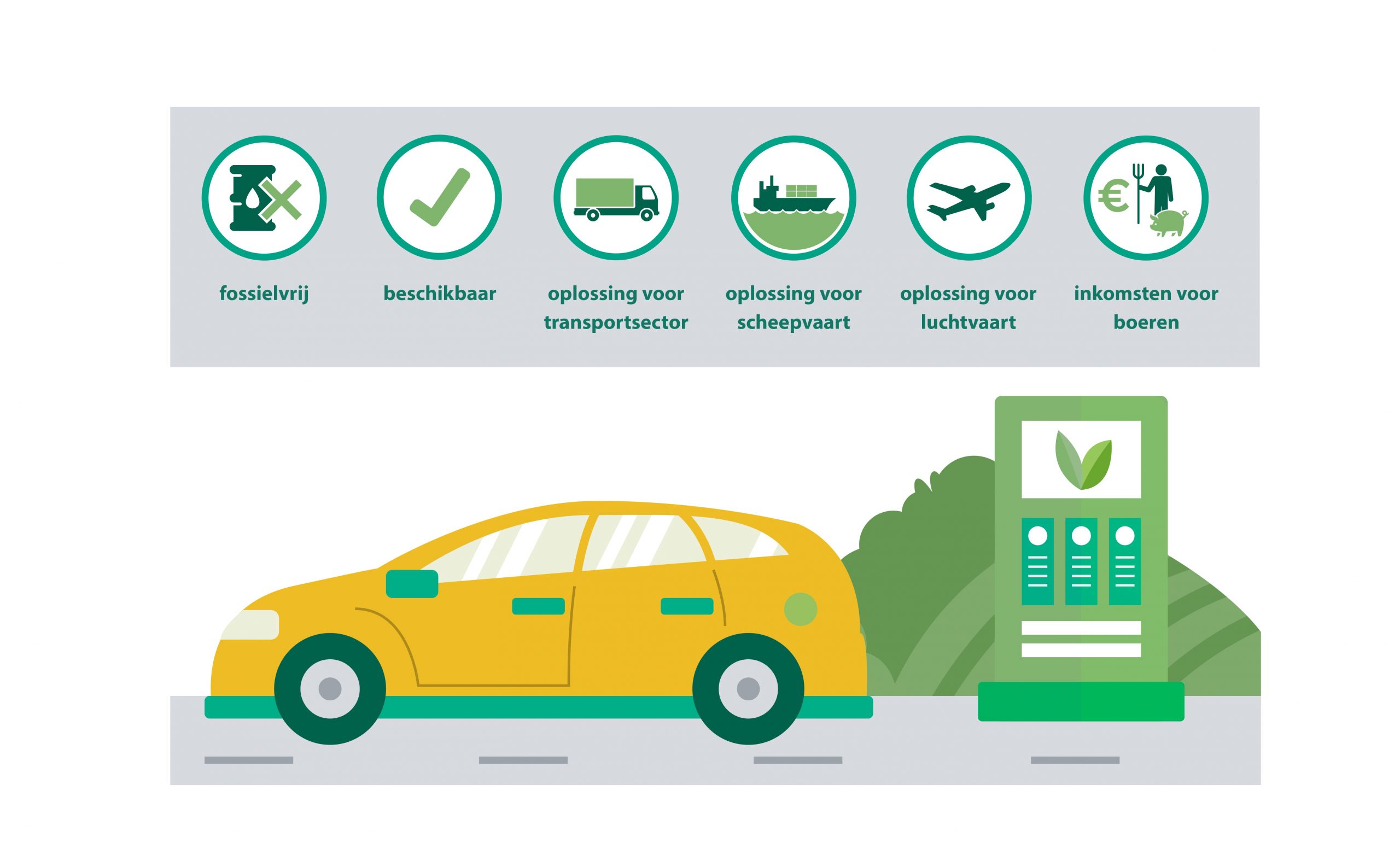In the coming decades, biodiesel will still be essential for making our transport sector more sustainable. Biodiesel is a liquid fuel with a high energy content. This makes it ideal for applications where a lot of power is required, for example in heavy road traffic, shipping and aviation. Biodiesel is a low-carbon fuel that is already available. The switch to alternatives such as solar energy or hydrogen takes time. In addition, there will continue to be CO2 emissions from electric vehicles as long as most electricity is still generated from fossil fuels.

As cars have an average lifespan of 15 years, a high percentage of cars with internal combustion engines will be on European roads for many years to come. This means that Europe’s drive to decarbonise road transport would benefit significantly from the use of low-carbon fuels such as biodiesel.
How does biofuel production affect farmers?
The production of crop-based biofuels in Europe provides at least €6.6 billion in revenue for EU farmers and helps them invest in increased farm productivity.
How does biofuel production affect the economy?
The renewable energy sector is a major job driver around the world, especially in rural areas. In Europe, the biofuel sector is responsible for an estimated 200,000 jobs, according to IRENA. Biodiesel production is thus an important economic driver for rural development across Europe.